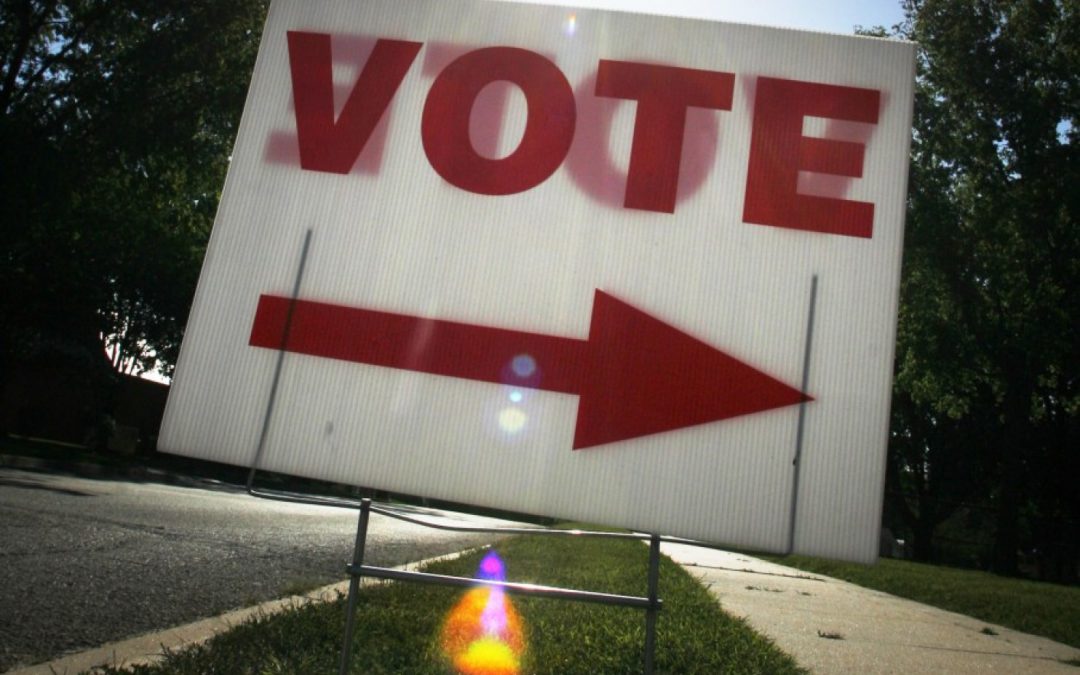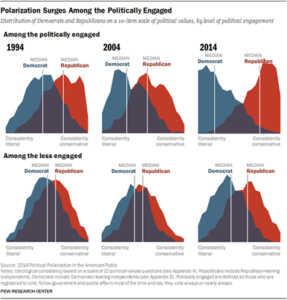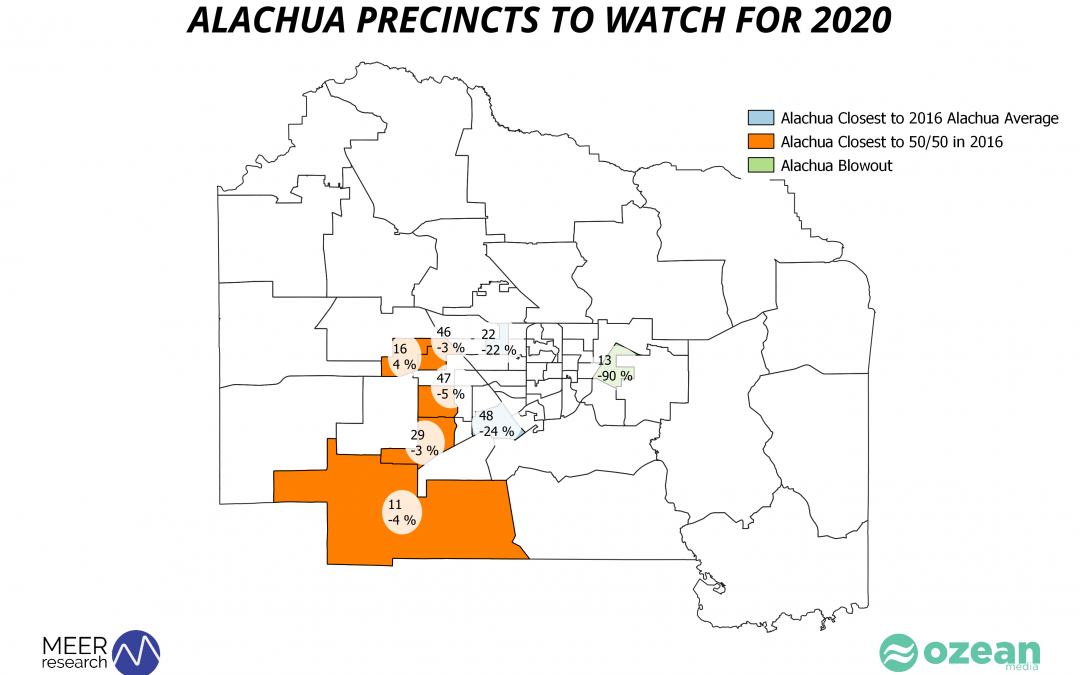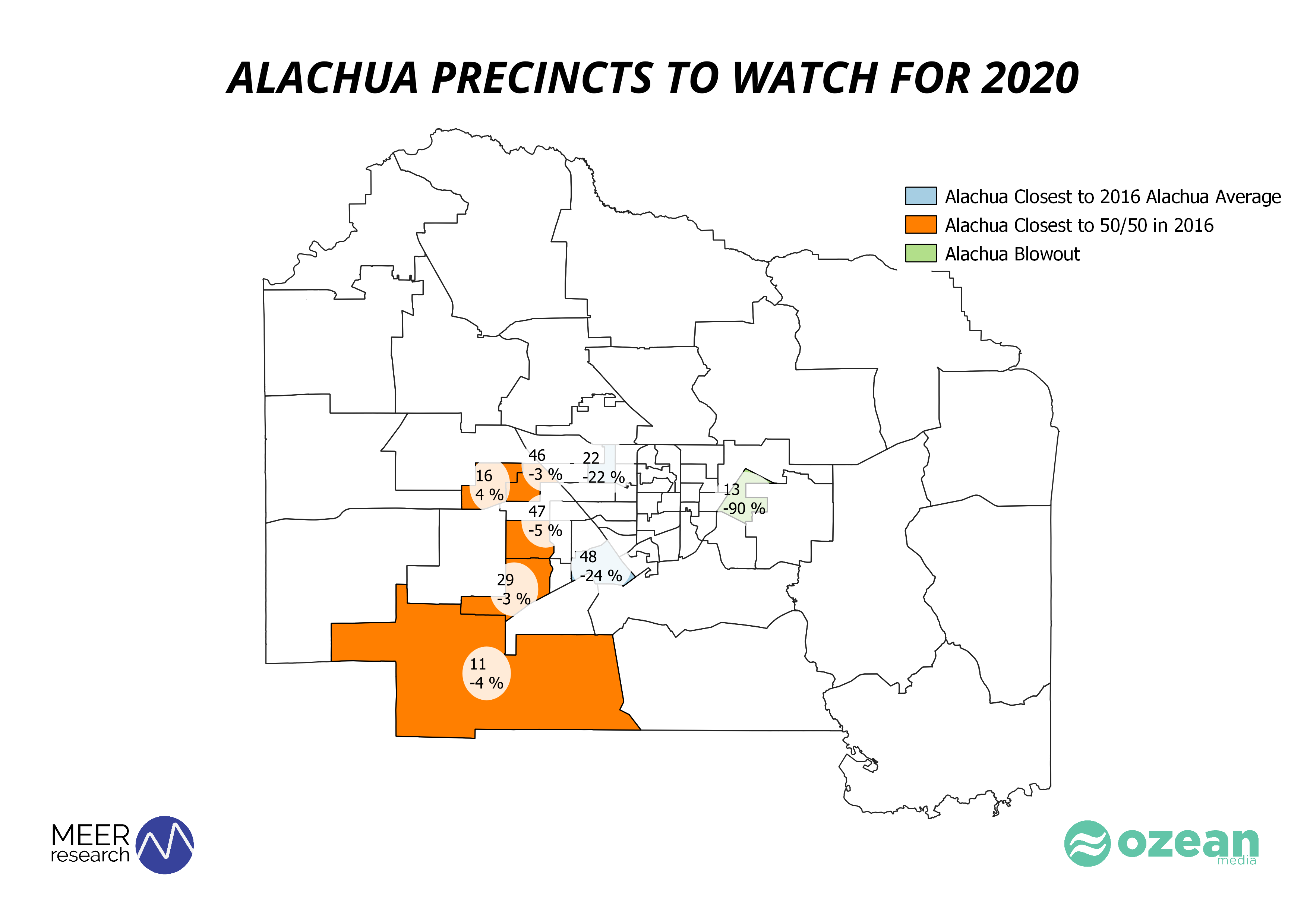Yes, our country has gone through periods of polarization, but this somehow seems different.
Negative Partisanship
Researchers are finding a lot of this is driven by “affective” or “negative partisanship”. Said plainly, we may not necessarily like our own party, our party’s issue positions, but we really, really hate the other party.
It is a disdain, a loathing, a complete distrust, and it feels like a precursor to collapse. And, frankly, these things may be.
We dislike people that look different than us.
Dislike people that earn more than us.
Dislike the thought of our child marrying someone from another party.[1]
We seek out information that reinforces our feelings and attitudes.
Many of us don’t have a single friend who supports the opposing party / candidate.
Many of us don’t have friends from a different race. [2]
The craziest thing is most of this is not driven by disagreements in policy – bear with me here because I know I am painting with a wide brush. Most of America is conflicted (ambiguous) and holds loose policy positions on many issues. Often, people look to party ques and leadership and adopt their issues stances. The most recent example is how Republicans changed attitudes towards Russia during the Trump era. [3]
This is driven by affect. It is driven by emotion. Specifically, it is driven by how we feel about others, and it affects “all sides.”
This polarization is connected to sorting (meaning we choose to live near people that think and look like us). In looking at 2020 results, 57% of Floridians live in precincts (the smallest unit of analysis for returns available) where one of the major candidates (Trump or Biden) won in excess of 60% of the vote. Nearly 40% of Floridians live in precincts where one of the major candidates won in excess of 65% of the vote.
This polarization is fed by a click-media that is more than willing to feed our worst appetites. Why? because polarization rewards extreme positions and is making a lot of people rich. [4][5] Politicians are more than willing to take polarized positions because we continue to reward them with votes.
And here is where it becomes terrifying. We are starting to describe “others” in non-human terms. They are “evil”, “animals”, “bitches”, or “dogs”, and in studying this type of language, we see repeated examples of what may come after its use.[6]
But here is what is truly terrifying: everything is now partisan and polarizing – driven by what we dislike.
For example, religion. How can religion be polarized? There is research that being a Christian is associated with the Republican party, and that may be driving some on the left’s aversion to religion. “I may not be sure about God, but I am sure I don’t like Republicans – THEREFORE, I am the opposite.”
Basic ‘right’ & ‘wrong’ are now somehow partisan. Storming the Capitol and killing five people at one point in our history wouldn’t be a difficult thing to condemn.
Polarization is now entangled with self-worth, and it has become self-reinforcing. It’s a feedback loop we can’t seem to get out of, and some of us are violent about it.
So, it’s bad, but the second part of the emails were people truly seeking answers.
What do we do about polarization?
I think I am going to disappoint you – sorry. I don’t have great answers for you.
It feels like America is in the middle of an awful and bitter divorce. We are yelling and screaming about control over money (government spending) and which parent gets to dictate the rules (courts). We are so bitter, angry and some of us no longer really know why.
But here are my recommendations:
Focus on yourself, noting each of us has a part. We may not be able to control DC, but we can control our own thoughts and behaviors.
- Stop using dehumanizing language. I think therefore I am.
- Find a person from the other party and have a beer with – or four. (If you don’t drink, have a cup of coffee). At this meeting, don’t try and change someone’s mind about politics, seek to understand. Ask lots of “How” questions.
- Stop giving money to extreme politicians.
- Call your elected officials (Congress, State Legislatures, local) and tell them you are concerned with the level of polarization. Ask “How do you think we can lower polarization?”
- Stop your trolling on social media. You don’t need to ‘own the libs’ or share a story of someone getting ‘destroyed’ on cable news.
- Broaden your news sources. I personally use feedly (https://feedly.com/) to subscribe to news sources from across the spectrum. I include over-seas views.
- Don’t accept violence. Be vocal about your opposition to it. Demand your local elected officials are outspoken about it. None of this wink and nod stuff – please say it is wrong period and leave off the “both sides” nonsense. It is leadership.
Yes, I know these recommendations are a bit flimsy and ‘West Wing-ish’, because the dark truth is “it’s bad, really bad”, and I don’t have a ton of hope.
But I know this started with “leaders” / elite and someone will have to lead – a scary idea.
In the end, I don’t know how to make mommy and daddy stop fighting, but I know I can try to regulate my behavior.
[1] https://academic.oup.com/poq/article/82/2/379/4996003?login=true
[2] https://www.americansurveycenter.org/american-storylines-project/
[3] https://news.gallup.com/poll/237137/republicans-positive-relations-russia.aspx
[4] https://www.nbcnews.com/news/world/fake-news-how-partying-macedonian-teen-earns-thousands-publishing-lies-n692451
[5] https://www.wsj.com/articles/facebook-knows-it-encourages-division-top-executives-nixed-solutions-11590507499
[6] https://journals.sagepub.com/doi/full/10.1177/1745691620953767?casa_token=9zUoPRmHdyEAAAAA%3A65icz5JnkUAoWHk-Sz6IU97Dy3ffpjikYt8ArN080zdkJw3UxbGFH8IJmSdtrMAmRvqnPBTgcmI97A








